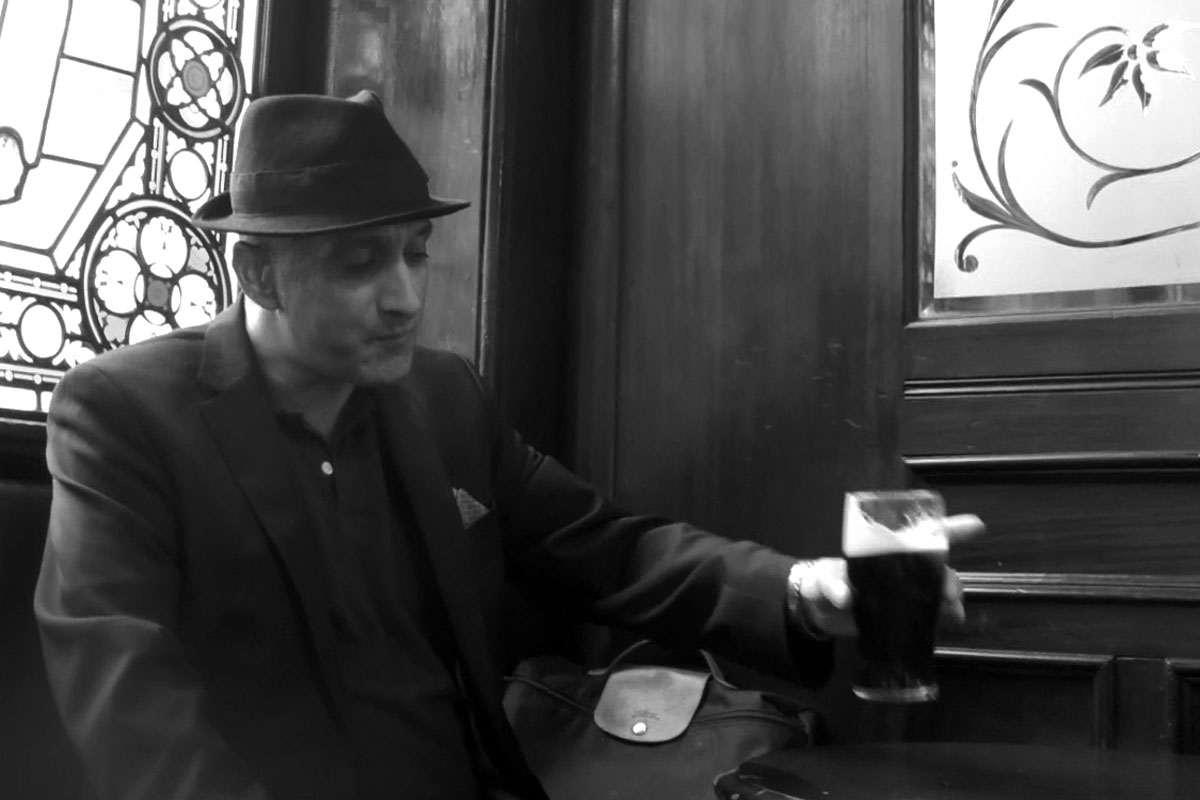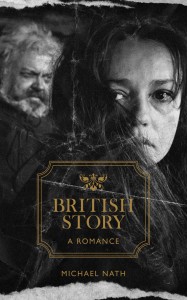Michael Nath talks to Seki Lynch about British Story. Conducted in 2014.
SEKI: More than anything, British Story is preoccupied with character, both with Arthur Mountain, the great character of the book, but also it seems concerned with the idea that one, namely Dr. Kennedy, may be able to acquire character, or reveal parts of his character which have remained dormant. There’s a lot to tackle just on this one subject, but firstly, what does character mean to you?
MICHAEL: I fancy that literary character is a magical effect which we still haven’t got too smart for. Our experience of character isn’t really distinguishable from our experience of each other, though it’s often more attentive. Clever people may tell us character is ‘only a matter of make-believe’, but practice hears a tremor in that phrase.
Baudelaire calls language skilfully managed sorcellerie évocatoire, and if you want some ‘evocative sorcery’, get you to Part VI of Yeats’s great poem, ‘Nineteen Hundred and Nineteen’, where a C14th Irish demon named Robert Artisson (who bears some resemblance to the Mayor of London) is called up. If this is marvellous, and terrifying, consider how much more marvellous is the appearance of character in the novel, where the effect has to be prolonged.
There’s a passage in Proust where the narrator says that everyday gestures of people are supernatural. I wonder what you think of that? Does he mean that it’s so remarkable that any of us are here at all, that we spend our lives not drawing attention to it – like bashful spirits? Then character is the expression of this condition of ours, here, and not here.
Note how often we use forms of the verb ‘to be’, when we refer to characters. This is not just a ‘convention’: we intuit their existence.
In answer to the other part of your question, let’s say that to acquire character is to become like someone in a book or drama, hard to forget, even time-proof …
‘When you’re a character, other characters check you out.’
You become a kind of perfume.
Secondly when did your own preoccupation with character begin and how important to you is the relationship between how characters are shaped by and shape a story?
You’re asking this at just the right time, since I realised a couple of days ago that it began with The Herbs, a lovely kids’ programme. When the narrator uttered the password, you went through a door in a sunlit wall and met these characters, a lion, a lord and lady, a witch, and so forth. At the end of the programme, the door shut – but it wasn’t over. Most of the talk of Shakespeare in British Story, is concerned with Falstaff when the door shuts.
To the next bit of the question, I’d say that characters must dance the story. Of course, the dance can be a slow one, such as your saraband – indeed, this may be best for a man who’s tied his shoes together.
You said the idea for your first book, La Rochelle, came from a dream your brother had. How did you get the idea for British Story?
Long ago, an August evening in Edinburgh, in the alcove of the flat where my wife and I lived, just behind the King’s Theatre, I saw a pale young man in a white shirt who’d run away from home; with shaking hand, he was trying to write … a moth fell in his tea and died; he gave up, and went into the city. His name was Ian Brown. Soon enough, he ran into a green-eyed Welshman. But it began with Ian Brown …
This is a very ambitious work, as the title suggests. How long has it taken you to write and why try to tackle such a large project?
It was around 1991 I had the idea. I spent some years on character sketches. From 1998 to 2001, I wrote several earlier versions; bits of these (like the sketches) were published here and there. I wrote a couple more novels (La Rochelle and The Book of the Law – which was never published). August 2009, I returned to British Story. All in all, it’s occupied nearly a quarter century – if you measure such things by years.
If it seems a large project, that’s because I don’t care for miniaturism, or economy in the novel. I’m for the baroque.
There’s a wonderful reference to the first line of Saul Bellow’s Herzog in British Story, ‘Was he losing his mind? All right with Kennedy.’ Which characters most influenced your writing of this book?
Well with Kennedy, there was a touch of Herzog (and maybe a trace of Ramona Donsal in Barbara, come to think of it), also Josef K, the type Woody Allen plays (though Kennedy’s taller), Joe (a hapless kid who lived in a transport cafe), Prufrock, Horace (again, a programme – mentioned in the book), even Prince Hal.
To let you in on a secret (though as a Yorkshireman, you may know already), there was a C19th hopping champion called Kennedy. Now Kennedy was such a fearsome hopper that opponents often bottled out of racing him, so he picked up the purse without having to hop at all – unless he performed a lap or so to please the crowd. The Kennedy in British Story is modelled ironically on that athlete, since he can never get his feet free.
Arthur Mountain is a kind of Falstaff; but at one time, he was also like Jack Carter (of the Ted Lewis novels), and Mark E Smith, along with some people I’ve known; I wonder if anyone will compare him to the Baron de Charlus? Perhaps not.
You’ve called British Story a romance but it is not a typical love story. What does romance mean to you in relation to this novel?
It has the old sense of meaning a story that deals with fantastic or improbable things, a tale of enchantment, questing, shape-shifting. 'The Faerie Queene' by Edmund Spenser is a kind of force behind the book. Natalie, for example, is something like the lady knight, Britomart.
The book comically has gripes with the modern state of affairs, which spans across everything from surveillance, politics, journalism, gang mentality and academia to gadgetry and if you’re allowed to take your phone out while chatting in a pub. But there’s genuine concern which goes beyond simply being reactionary- Why did you feel it important to challenge these things?
Because I think modernity, its instruments, its conceit, its presumption in speaking for all of us, is a monster. Of course, we all have clean water and the vote – in the western world, at least. But individuality (genuine individuality) and the soul are hated, since they can’t be rationalised – or told what to buy. Meanwhile, our thirst increases, we cannot breathe for the grit of numbers.
With an air of horrible achievement, people talk about ‘kick-starting’ the day, or their ‘energy levels’, as if existence were now fully mechanical and metred. In public life, no one speaks in sentences; they conduct the traffic of their own meaning, they wave their hands, and emit messages. It’s uncool to say things slowly.
I would like British Story to slow things down a bit.
In both La Rochelle and British Story there are often uncanny coincidences which propel the story forward. Mountain even says at one point, ‘The coincidence is the story.’ Why is coincidence so prominent in your writing?
To annoy statisticians.
Or you could say it’s a preservation of the romance, where characters happen upon each other just as the story needs.
But it’s also part of the waking dream.
By the way, people who have long memories experience coincidence frequently …
‘Nothing disappears/ Though all is rearranged’!
Speech is clearly important to your work. Accents, dialects and colloquialisms are rich throughout the novel. The narrator’s voice especially is as much a lesson in story telling as Arthur Mountain’s speeches – constantly joking, whispering, changing pace with the rhythms of the story. What is it about speech that interests you so much?
Well it is a British story, so it can’t just speak in that metropolitan register that’s common in the literary novel. At the same time, you don’t want to overdo the phonetic/dialect realism: a) because it attracts too much attention; b) because it’s exceptionally difficult to get right (the various forms of ‘you’ and ‘your’ in Swansea speech are hard enough to do accurately). What matters is that the Welsh, Scotch and English regions have each their own sound.
Cheers. What you say about the voice of the narrator is quite a compliment. The novel in general ought to be in conversation with the reader; once you have the reader listening, you can make most things interesting (even, I hope, a fridge). Like the ghost of Cirencester (1670 AD), the narrator should address the reader in a ‘melodious twang’. Know what I mean?
Aristotle says plot is the soul of tragedy; well voice is the soul of the novel. By the voice, we judge if a novel is living or dead. Nothing else matters.
Much well-reviewed and prize-winning fiction is stone dead.
Have you begun working on anything new or is there a new idea you want to tackle?
Yes. It’s called The Treatment. Look out for Mr Arnold, John F (‘Fabian’) Morgan, the Sibyl, Lawyer Hanley, Donna Juan, Claire Sykes and the terrible de Laceys.

